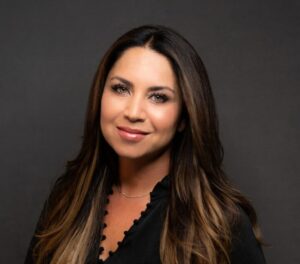 • For the first time since the start of the pandemic, the Oxnard Performing Arts Center Corporation (OPAC) welcomes back RESCUECON, a one-day event bringing creativity and community together to celebrate and facilitate animal rescue and adoption. The event is free and open to the public and will be held on Saturday, April 22 (Earth Day) from 10 am to 3 pm at the Oxnard Performing Arts & Convention Center. More information can be found at: theopac.org/rescuecon
• For the first time since the start of the pandemic, the Oxnard Performing Arts Center Corporation (OPAC) welcomes back RESCUECON, a one-day event bringing creativity and community together to celebrate and facilitate animal rescue and adoption. The event is free and open to the public and will be held on Saturday, April 22 (Earth Day) from 10 am to 3 pm at the Oxnard Performing Arts & Convention Center. More information can be found at: theopac.org/rescuecon
RESCUECON is a convention like no other, where the human-animal bond takes center stage. Through animal adoptions and the arts, hands-on workshops, a kid’s area, talks by really amazing people, an artisan marketplace, and so much more, attendees will learn, play, explore, and, above all, refresh their relationship with animals… and each other.
Special activities include:
Pet adoptions from Ventura County Humane Society, Canine Animal Rescue League, Humane Society of Ventura County, PawWorks, SurfCat Rescue, and others
Approximately 6.3 million companion animals enter U.S. animal shelters nationwide every year. RESCUECON is one way to increase animal adoption, promote animal welfare and help create a strong rescue community. The event will also help shed light on other animals in need in our community, including marine animals, wildlife, farmed animals, and others.
• Kittens and cats, whether they live indoors or outdoors, can be exposed to diseases caused by viruses or bacteria. Vaccinations help protect our feline friends by preventing the spread of these diseases and boosting their body’s defense against potentially fatal illnesses.
Because of this, Dr. Lori Teller, a clinical associate professor at the Texas A&M School of Veterinary Medicine & Biomedical Sciences, encourages owners to vaccinate their kittens and cats against common, yet fatal, diseases sooner rather than later.
“Kittens should begin pediatric visits to the veterinarian when they are 6-8 weeks old, where vaccinations will initially be given as a series until the animal is 16-20 weeks of age,” Teller said. “On the other hand, cats adopted as adults should visit a veterinarian and receive their vaccinations as soon as possible.”
Some common diseases that cats should be protected against include panleukopenia, a viral disease caused by feline parvovirus, and rhinotracheitis, an infection that leads to upper respiratory infections.
“If a cat gets panleukopenia, all of their white blood cells are wiped out, leaving it unable to fight off any other infections; this disease frequently results in death,” Teller said. “Additionally, once a cat has rhinotracheitis, cats will generally become carriers for life and may experience flare-ups of respiratory problems when they become stressed or when their immune system is suppressed.”
Teller explained that there is a combination vaccine that can protect cats against panleukopenia, rhinotracheitis, and calicivirus, a virus that causes upper respiratory infections and ulcers — or sores that develop in the cat’s mouth and on the tongue.
Additionally, cats who venture outside should be vaccinated against feline leukemia, a highly contagious virus that spreads easily between cats.
“Feline leukemia is most commonly spread through saliva and nasal secretions, so cats that share food and water bowls, groom each other, or bite each other in a fight can spread the virus,” Teller explained. “This virus can lead to a suppressed immune system and leaves a cat susceptible to other infections, as well as cancer, all of which can potentially be fatal.”
There also are vaccines that cats require no matter their lifestyle, such as rabies. Teller pointed out that rabies, which is almost always fatal, can be transmitted to cats by wildlife, including bats, coyotes, raccoons and skunks.
Pet Talk is a service of the School of Veterinary Medicine & Biomedical Sciences, Texas A&M University. Stories can be viewed on the web at vetmed.tamu.edu/news/pet-talk. Suggestions for future topics may be directed to [email protected].
• (HealthDay News) — It won’t come as a surprise to those who love their furry friends, but a new poll finds many Americans saying their pets offer them mental health benefits and are a part of the family.
Roughly 86% of cat and dog owners said their pets had a positive impact on their well-being, the American Psychiatric Association’s (APA) Healthy Minds Monthly Poll found. Owners of fish, birds and turtles were less likely to say so, at 62%. Still, about 88% of all pet owners said their animals were part of their family.
“People recognize that there is something special about bonds between humans and their pets,” said APA President Dr. Rebecca Brendel.
About 50% of 2,200 people surveyed in February said they had dogs, 35% had cats, 3% had a variety of other pets and 31% had no pets.
But there were some downsides to being so attached to their pets.
Among the concerns pets brought their owners were worries about the pets aging or dying, at 71%, their pets’ health conditions, at 66%, arrangements while traveling, at 56%, and health care-related expenses, at 58%.
About 29% of those who didn’t own a pet said they couldn’t afford to, while 22% said they didn’t have time to care for a pet and 11% said they were mourning a deceased pet.


